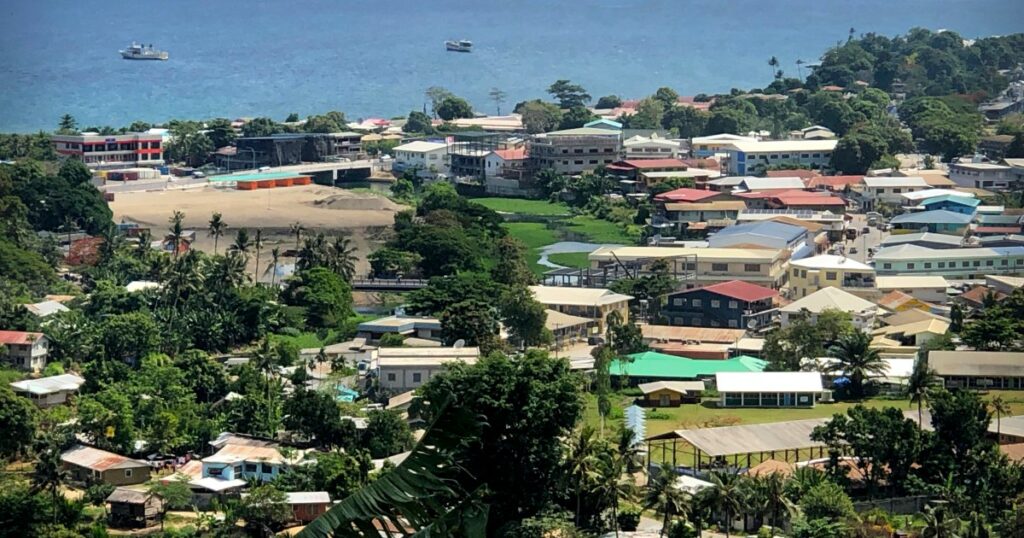Solomon Islands’ Strong Support for Peace Corps’ Return Revealed
After years of delay, a report obtained through a freedom of information request has shown overwhelming support and enthusiasm for the return of the United States Peace Corps to the Solomon Islands. The report, titled the “Solomon Islands Re-entry Assessment Report,” highlights the positive reception the agency received from both the local population and the government.
Prime Minister Manasseh Sogavare expressed a strong need for the Peace Corps’ return, stating, “We need you,” while Attorney-General John Muria praised the lasting impact the agency had on the people and communities of the Solomon Islands. The report also noted that the assessment team was warmly welcomed at all levels of the government, as well as by other development partners, non-governmental organizations, and community members who were previously taught by Peace Corps Volunteers.
The Peace Corps withdrew from the Solomon Islands in 2000 due to ethnic violence but received a formal invitation to return in February 2019. An assessment team visited the country and recommended the agency’s return, citing an “enabling environment” for meaningful work and safe service. Despite the positive reception, the Peace Corps has yet to resume operations in the Solomon Islands, with no public explanation provided.
While neighboring countries have seen the return of Peace Corps volunteers, the Solomon Islands remains without their presence. Speculation has arisen that the delay may be linked to the Solomon Islands government’s efforts to strengthen ties with China, a move that has raised concerns among US, Australian, and New Zealand officials. The Solomon Islands has become a focal point in the strategic competition between Washington and Beijing due to its location in the Pacific.
As the status of the Solomon Islands’ relations with Beijing remains uncertain, the return of the Peace Corps could play a significant role in shaping the country’s future development. Former US Ambassador Catherine Ebert-Gray expressed hope that the agency would be able to resume its work in the Solomon Islands, supporting the nation’s environmental, health, and education initiatives. The US Congress has allocated just $500 to the Peace Corps’ work in the Solomon Islands for the fiscal year of 2024, suggesting that progress may be slow but remains possible.
#Solomon #Islands #support #agencys #return #revealed
The delayed return of the Peace Corps to the Solomon Islands has significant long-term implications for the country’s development and geopolitical landscape. The overwhelming support and enthusiasm for the agency’s presence in the country, as highlighted in the “Solomon Islands Re-entry Assessment Report,” underscores the positive impact it had on education, healthcare, and community development during its previous tenure.
The failure to resume operations in the Solomon Islands, despite the formal invitation from Honiara in 2019, raises questions about the reasons behind the delay. The suspected political motivations, including potential efforts to curry favor with China, could have lasting consequences for the country’s relationships with major global powers.
The current status of the Peace Corps’ planned return remains uncertain, with limited funding allocated by the US Congress for the agency’s work in the archipelago. However, the potential for the agency to resume its activities in the Solomon Islands presents an opportunity for renewed support in key areas such as education, healthcare, and community development.
In light of these insights, actionable advice for stakeholders in the Solomon Islands and the international community includes:
1. Advocate for the timely return of the Peace Corps to the Solomon Islands to leverage its expertise and resources for sustainable development initiatives.
2. Encourage transparency and accountability in the decision-making process regarding the agency’s return, ensuring that political motivations do not overshadow the country’s development priorities.
3. Strengthen partnerships with other development agencies and organizations to fill the gap left by the Peace Corps’ absence and support ongoing efforts in education, healthcare, and community development.
4. Monitor the evolving geopolitical dynamics in the region and engage in diplomatic dialogue to ensure that the Solomon Islands’ relationships with major powers align with its long-term development goals.
By taking proactive steps to address the challenges and opportunities presented by the Peace Corps’ delayed return, stakeholders can work towards a more resilient and sustainable future for the Solomon Islands.

